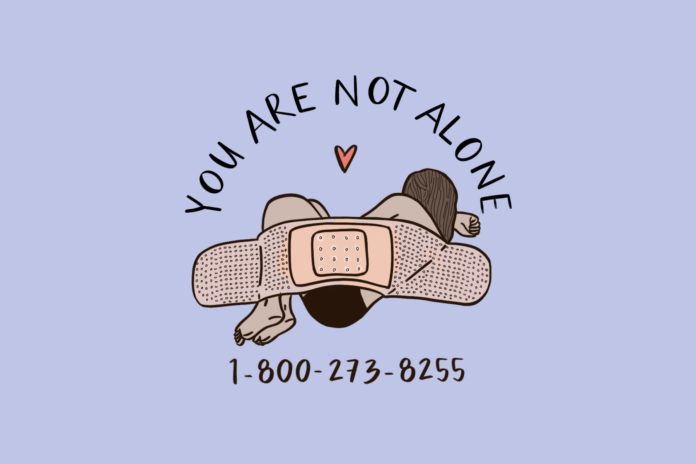National Suicide Prevention Week is an annual campaign in the United States to inform individuals in the healthcare field and the general public about some of the warning signs of suicide.
For many people, this is a difficult topic to discuss, but it is important to address it, as suicide is the second leading cause of death among 13- to 19-year-olds.
This year, Baylor did not take the time to address National Suicide Prevention Week in a manner that would have been beneficial to people who may be struggling. Instead, it held a “Wellness Night,” which was advertised as a resource fair but didn’t explicitly provide resources detailing suicide prevention.
Beyond National Suicide Prevention Week, there need to be more resources available to students — not just the hotline number that’s tucked away at the bottom of every class syllabus, which many professors don’t even mention. Resources need to go beyond pamphlets, notecards and free T-shirts. Students need something that will be able to help them in the long run.
There are programs and procedures that Baylor should implement going forward that would be beneficial to students, faculty and staff. For instance, professors should be equipped to notice signs and accurately respond to students who are struggling. Professors could go through training on this topic, and they could mention on their syllabi that they are equipped with the tools to respond, if a student needs them.
On the students’ side, it would be a good idea for students to be required to watch a video or take a course before starting school about how to address these feelings themselves and among their peers. We’re already required to learn about Title IX and underaged drinking, so why can’t red flags for a classmate struggling with suicidal thoughts be added to the list?
College can be a difficult transition for some students and may cause additional stressors like feelings of loneliness and homesickness — not to mention during a global pandemic.
National Suicide Prevention Week is a very important time to educate people about the warning signs of suicide, but it should also be a time to uplift the survivors of suicidal thoughts. In 2019, 12 million American adults considered suicide, but they did not act on those thoughts. Those 12 million individuals may seem like strangers, but they may be your next-door neighbor, the person who sits across from you in class or one of your best friends.
It is difficult for most people to express what they are feeling because they are fearful that it may come across as attention-seeking or a burden to others.
That’s why it is important that as a Baylor community, we begin making strides to educate ourselves so that we can be better equipped to support those in our community who are struggling.
Baylor, this is not something that should just be left up to students or student organizations like Zero Reasons Why. As our university, you have a responsibility to provide spaces for students who are struggling with all things, including suicide.
We know that you can do more, and we would like to see it happen.






